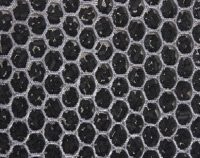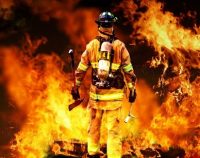Carbon Absorption of Volatile Organic Compounds: 3 PDH
$18.00
Carbon adsorption is used in air pollution control to remove volatile organic compounds (VOCs) from low to medium concentration gas streams, when stringent outlet concentration must be met and/or recovery of the VOC is desired. This course covers the types of adsorbers, adsorption theory, and design procedures for carbon adsorption equipment.
SPECIFIC KNOWLEDGE OR SKILL OBTAINED
This course teaches the following specific knowledge and skills:
- The types of carbon adsorption equipment and which are in most common use
- Define an adsorption isotherm and be able to recognize the equation for the Freundlich isotherm
- Adsorber sizing parameters
- Make adsorption and desorption time calculations
- Procedures for estimating carbon requirements
- Cost estimation procedures for carbon adsorption systems
CERTIFICATE OF COMPLETION
You will be able to immediately print a certificate of completion after passing a 20 question multiple-choice quiz. The quiz can be retaken unlimited times until a passing grade of 70% or better is earned. This course satisfies 3 professional development hours (PDH) of continuing education.
Related Courses
Fire Protection System Design: 3 PDH
$18.00 Add to cartThis three (3) hour course overviews standards to design and build an environment for building occupants that is reasonably safe from fire and products of combustion as well as how to provide a reasonable level of building usability and property protection from the effects of fire and products of combustion.Instructor: Seth Grablow, PEThis three (3) hour course overviews standards to design and build an environment for building occupants that is reasonably safe from fire and products of combustion as well as how to provide a reasonable level of building usability and property protection from the effects of fire and products of combustion.
SPECIFIC KNOWLEDGE OR SKILL OBTAINED
This course teaches the following specific knowledge and skills:
- Become familiar and identify fire protection engineering design criteria
- Discuss the various building fire protection devices and installation standards
- Examine adequacy for water supply and the various methods and standards to implement sprinkler systems
- Understand fire extinguishing systems – the how, what, and where to install
- Identify fire alarm system design guidlines and installation standards
CERTIFICATE OF COMPLETION
You will be able to immediately print a certificate of completion after passing a 15 question multiple-choice quiz. The quiz can be retaken unlimited times until a passing grade of 70% or better is earned. This course satisfies three (3) continuing education hour (CEH)/professional development hour (PDH) of continuing education.
Preview CourseClick” Preview Course” to View Prior to PurchaseClick “Add to Cart” to Purchase and Access QuizElectrification-Power System Evolution and Infrastructure Development: 5 PDH
$30.00 Add to cartIn this course the student will understand Electrification, the shift from non-electric to electric sources of energy at the point of final consumption, and an analysis of the potential impacts of widespread electrification on the evolution of the U.S. electricity system. This course follows the guide: Electrification Futures Study: Scenarios of Power System Evolution and Infrastructure Development for the United States, published by the National Renewable Energy Laboratory. Instructor: Juan Pesante, PESPECIFIC KNOWLEDGE OR SKILL OBTAINED
This course teaches the following specific knowledge and skills:
- Understand Electrification and what it means for the future
- Discuss end-use technology variations of the U.S. electrical system infrastructure
- Discuss variations on cost, energy consumption, and emissions
- Discuss demand-side flexibility variations
- Explain electric sector variations on system evolution, costs, energy consumption, and emissions
CERTIFICATE OF COMPLETION
You will be able to immediately print a certificate of completion after passing a 20 question multiple-choice quiz. The quiz can be retaken unlimited times until a passing grade of 70% or better is earned. This course satisfies five (5) hours of professional development (PDH).
Preview CourseClick “Preview Course” to view prior to purchaseClick “Add to Cart” to purchase




